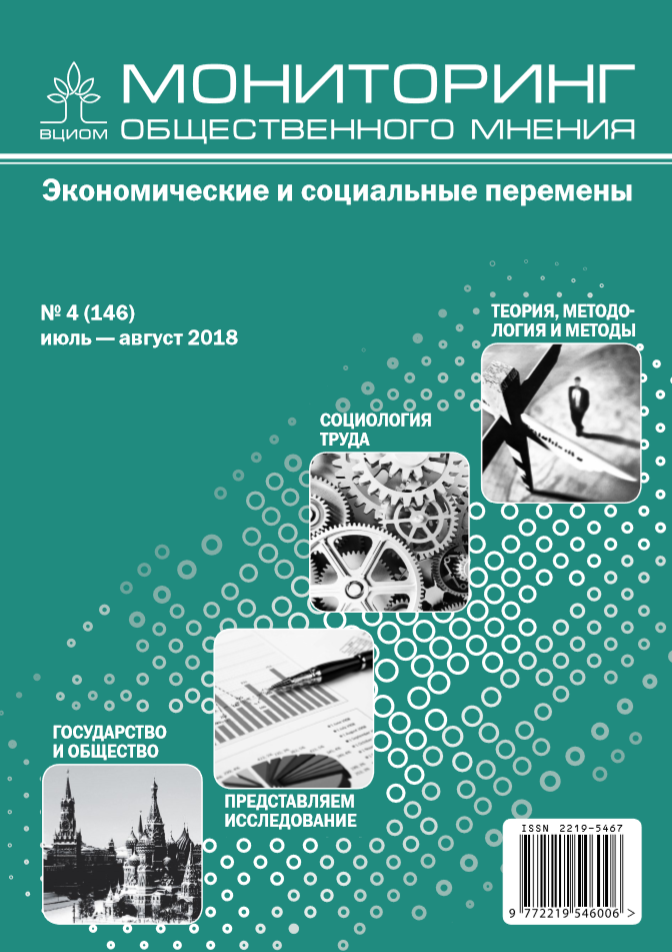Regional academic community under reforms: basic transformations and perceptions
DOI:
https://doi.org/10.14515/monitoring.2018.4.11Keywords:
academic community, regionalization, horizontal engagement, vertical engagement, leadership, project links, professional identityAbstract
The article analyzes the main trends in the transformation of the regional academic community in the context of the reforms in the Russian science. The empirical basis of the analysis is semi-structured interviews with employees at academic institutions in the Udmurt Republic. The author observes changes in the quantitative characteristics of the community, the identity strategies, the system of scientific relations, and the leadership structure. The author assumes that the academic community transformations are caused by the shift to the project work where horizontal engagement can be enhanced to compensate for the weakening vertical community ties. Special attention is paid to the risks and opportunities of the project approach in scientific work management. The main risks for the further development of the regional community are thematic regionalization, personnel loss, growing uncertainty of the subject of the request for scientific research, and reduced academic mobility. New opportunities for the changes in the configuration of the academic community are growing horizontal relationships in interdisciplinary projects as well as intensifying external links due to the need of partner search for the applied projects outside the region. The paper concludes that the network type horizontal engagement can create additional resources for the development of the community which could also strengthen the regional academic identity and foster the growth of symbolic capitalization. At the same time, the author emphasizes that these resources need proper political and administrative support.






